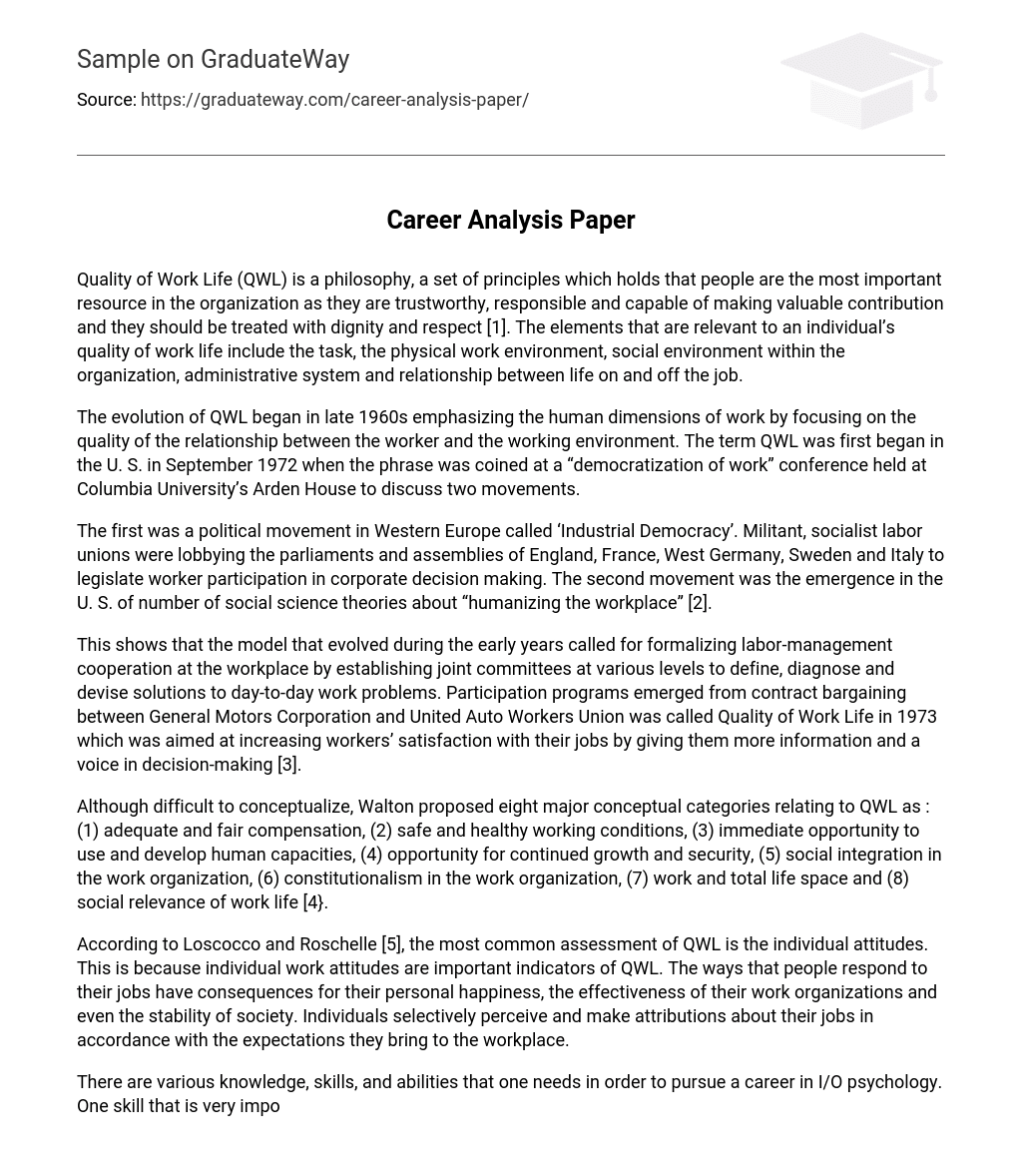Quality of Work Life (QWL) is a philosophy, a set of principles which holds that people are the most important resource in the organization as they are trustworthy, responsible and capable of making valuable contribution and they should be treated with dignity and respect [1]. The elements that are relevant to an individual’s quality of work life include the task, the physical work environment, social environment within the organization, administrative system and relationship between life on and off the job.
The evolution of QWL began in late 1960s emphasizing the human dimensions of work by focusing on the quality of the relationship between the worker and the working environment. The term QWL was first began in the U. S. in September 1972 when the phrase was coined at a “democratization of work” conference held at Columbia University’s Arden House to discuss two movements.
The first was a political movement in Western Europe called ‘Industrial Democracy’. Militant, socialist labor unions were lobbying the parliaments and assemblies of England, France, West Germany, Sweden and Italy to legislate worker participation in corporate decision making. The second movement was the emergence in the U. S. of number of social science theories about “humanizing the workplace” [2].
This shows that the model that evolved during the early years called for formalizing labor-management cooperation at the workplace by establishing joint committees at various levels to define, diagnose and devise solutions to day-to-day work problems. Participation programs emerged from contract bargaining between General Motors Corporation and United Auto Workers Union was called Quality of Work Life in 1973 which was aimed at increasing workers’ satisfaction with their jobs by giving them more information and a voice in decision-making [3].
Although difficult to conceptualize, Walton proposed eight major conceptual categories relating to QWL as : (1) adequate and fair compensation, (2) safe and healthy working conditions, (3) immediate opportunity to use and develop human capacities, (4) opportunity for continued growth and security, (5) social integration in the work organization, (6) constitutionalism in the work organization, (7) work and total life space and (8) social relevance of work life [4}.
According to Loscocco and Roschelle [5], the most common assessment of QWL is the individual attitudes. This is because individual work attitudes are important indicators of QWL. The ways that people respond to their jobs have consequences for their personal happiness, the effectiveness of their work organizations and even the stability of society. Individuals selectively perceive and make attributions about their jobs in accordance with the expectations they bring to the workplace.
There are various knowledge, skills, and abilities that one needs in order to pursue a career in I/O psychology. One skill that is very important is communication. Another skill/ability that one needs to have is the idea of organization. Regarding a psychologist who deals with QWL, the best possible scenario would be getting a position working as a human resource manager for a corporation.
In this position the individual has the most ability to put his/her skills to work in aiding the industry in taking care of its most valuable assets – the people. An additional career choice for an I/O psychologist would be one as a teacher or better yet professor to teach students and help them better understand the issues they’ll be facing when they join the work force and how to deal with them. Other jobs may include working in management or working for one main company while being staffed out to smaller companies.
I/O psychology also presents constant challenges because it is a relatively new field and people are still trying to learn more about people in the workplace. With training and team building becoming a large part of the business world, I/O psychology is also becoming a large part of the business world. Many companies are looking to hire full time I/O psychologists to help their company keep up with new technology. As we learn more about the I/O psychology field, it is inevitable that more and more jobs will become available.





